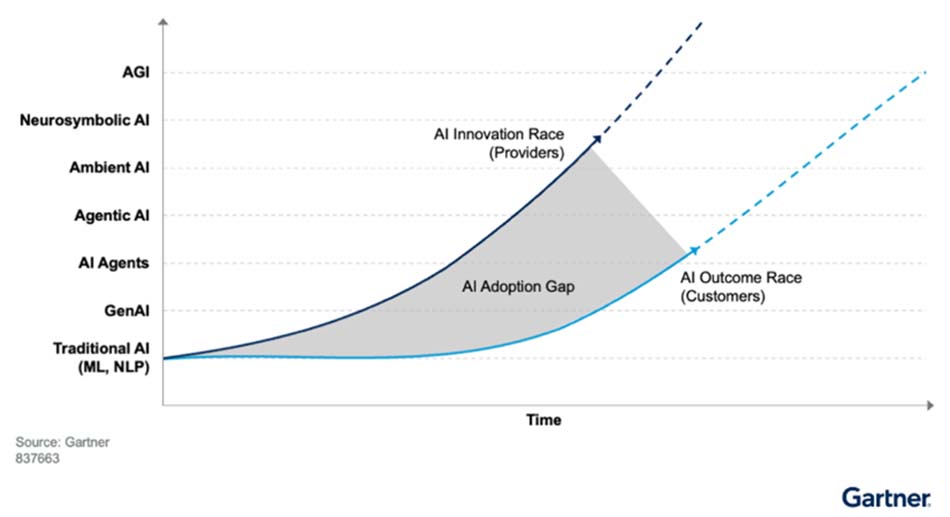The current supply of agentic AI models, platforms and products far exceeds demand, which will result in consolidation and market correction, according to Gartner.
Gartner analysts anticipate that agentic AI markets will consolidate in the short term as hype and fear of missing out (FOMO) give way to fundamental economics. In this AI Vendor Race, the losers of consolidation will be undifferentiated AI companies and their investors. The winners will be capital-rich incumbents with the resources to acquire promising technologies and talent.
“While we see early signs of market correction and consolidation, product leaders should recognise this as a regular part of the product life cycle, not a sign of inevitable economic crisis,” says Will Sommer, senior director analyst at Gartner. “Over the longer term, consolidation will enable industry leaders to develop agentic products that meet the technical and business requirements of customers who are presently struggling to adopt AI agents.”
The mass proliferation of AI providers launching agentic models, agentic-integrated platforms and other agent-infused products far exceeds the present demand.
The AI Adoption Gap

Similar to other corrections in energy, telecommunications, and the dot-coms, product leaders should view this stage of the agentic AI market as a transition period in which business models are forced to calibrate to transformational technologies.
“The impending agentic AI market correction is distinct from speculative bubbles fueled by systemic financial engineering, fraud or policy,” Sommer says. “At this point, the underlying product, agentic AI, is sound, and the current market correction, where markets rationalize and consolidate, is a regular part of the product life cycle.
“However, a ‘speculative bubble’ could still form if investment becomes detached from agentic AI’s intrinsic potential to deliver tangible and commensurate economic value.”
Large tech companies have already been acquiring smaller, specialized AI firms, signaling the start of the market correction phase. With this consolidation will come benefits of scale and vertical integration.
“Large providers will establish expansive, integrated ecosystems that significantly improve agentic performance, leading to more reliable products targeted at specific business outcomes,” says Sommer. “Domain-specific language models, which provide superior value and performance in specialized applications, represent one such innovation.”
These evolutions, paired with changing consumer habits, skills and processes, will facilitate the mass adoption of agentic products. The remaining providers — the newly emerged AI incumbents — will attain sustainable growth and eventually the agentic AI market will surpass “adoption” phase expectations based on tangible metrics of productivity and profit.
